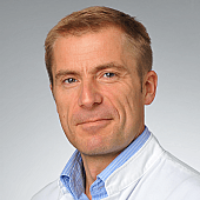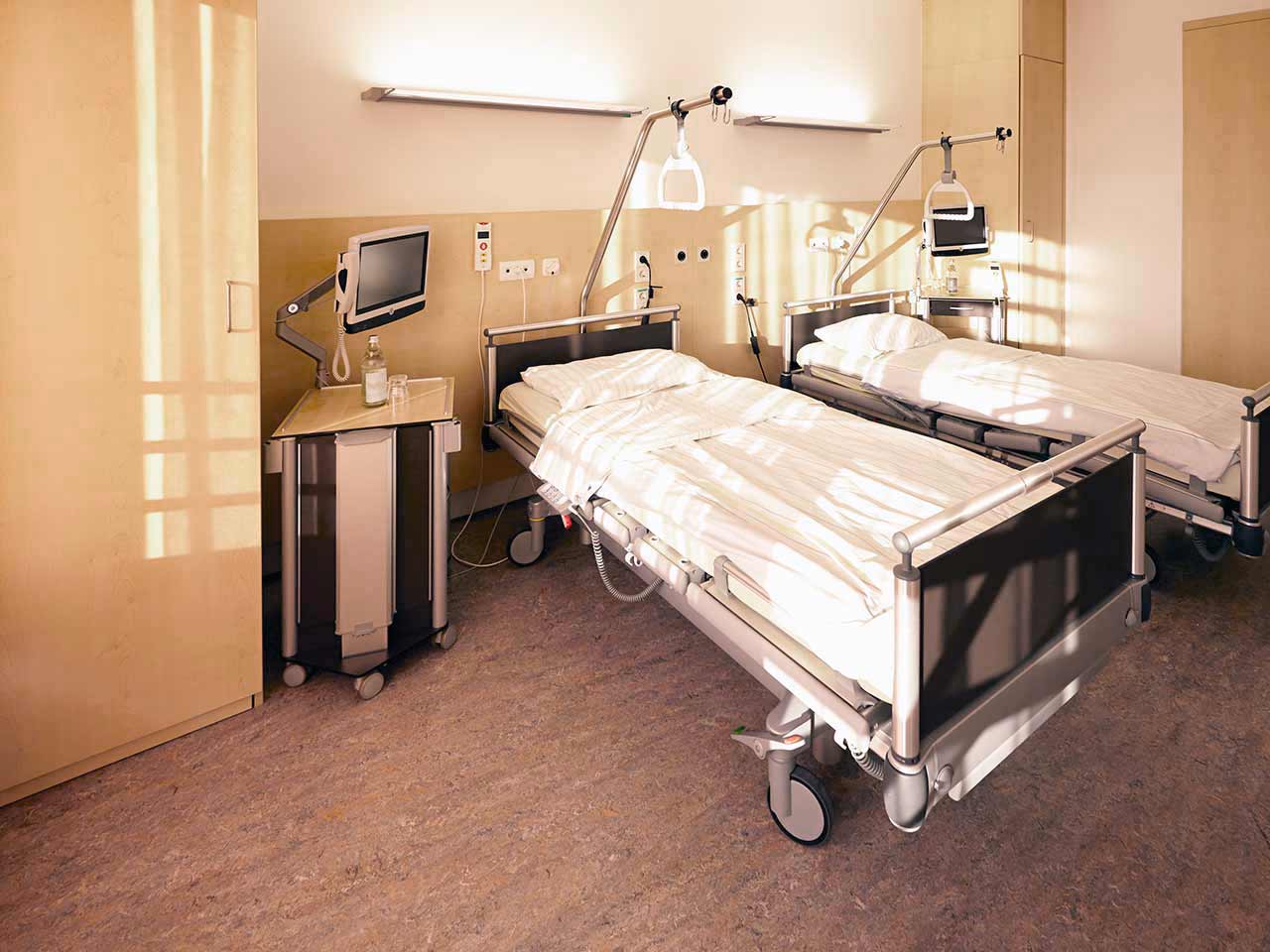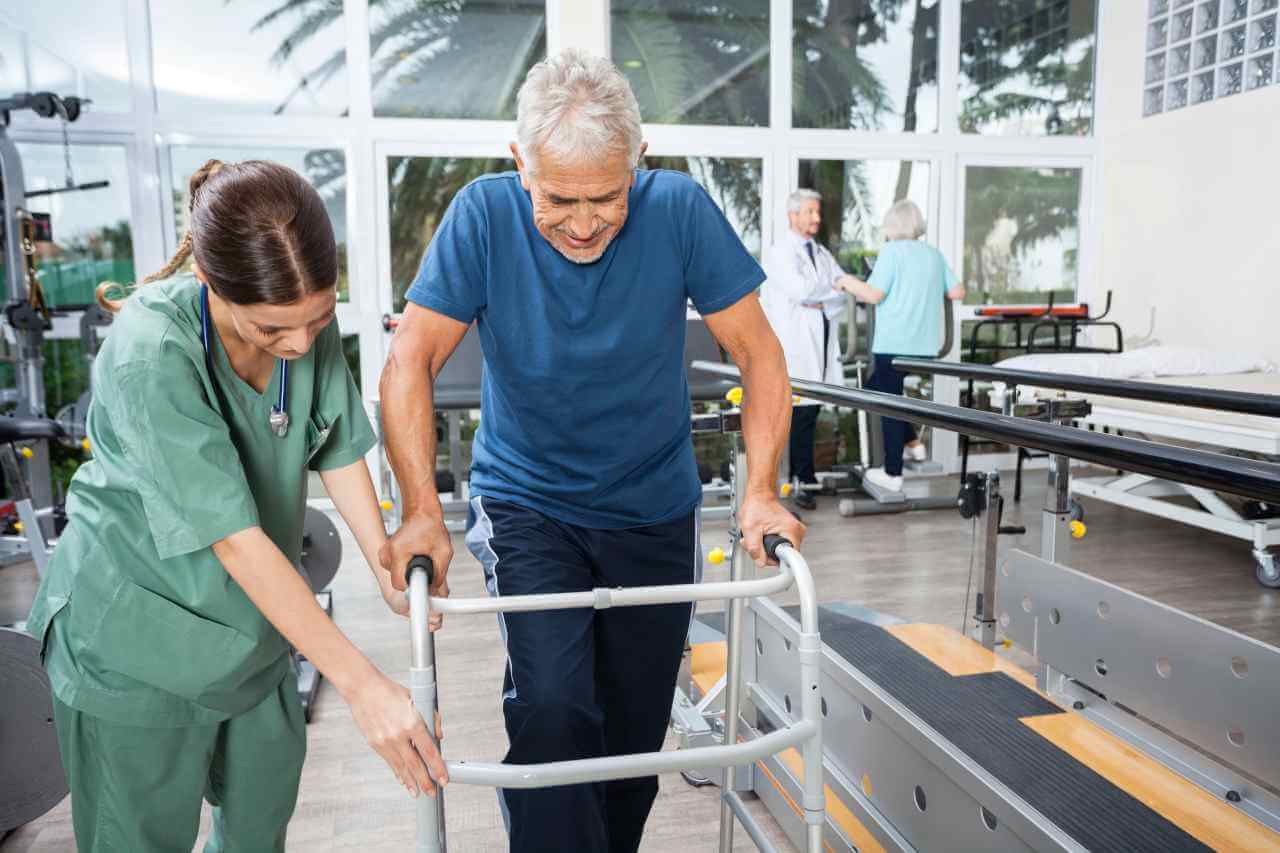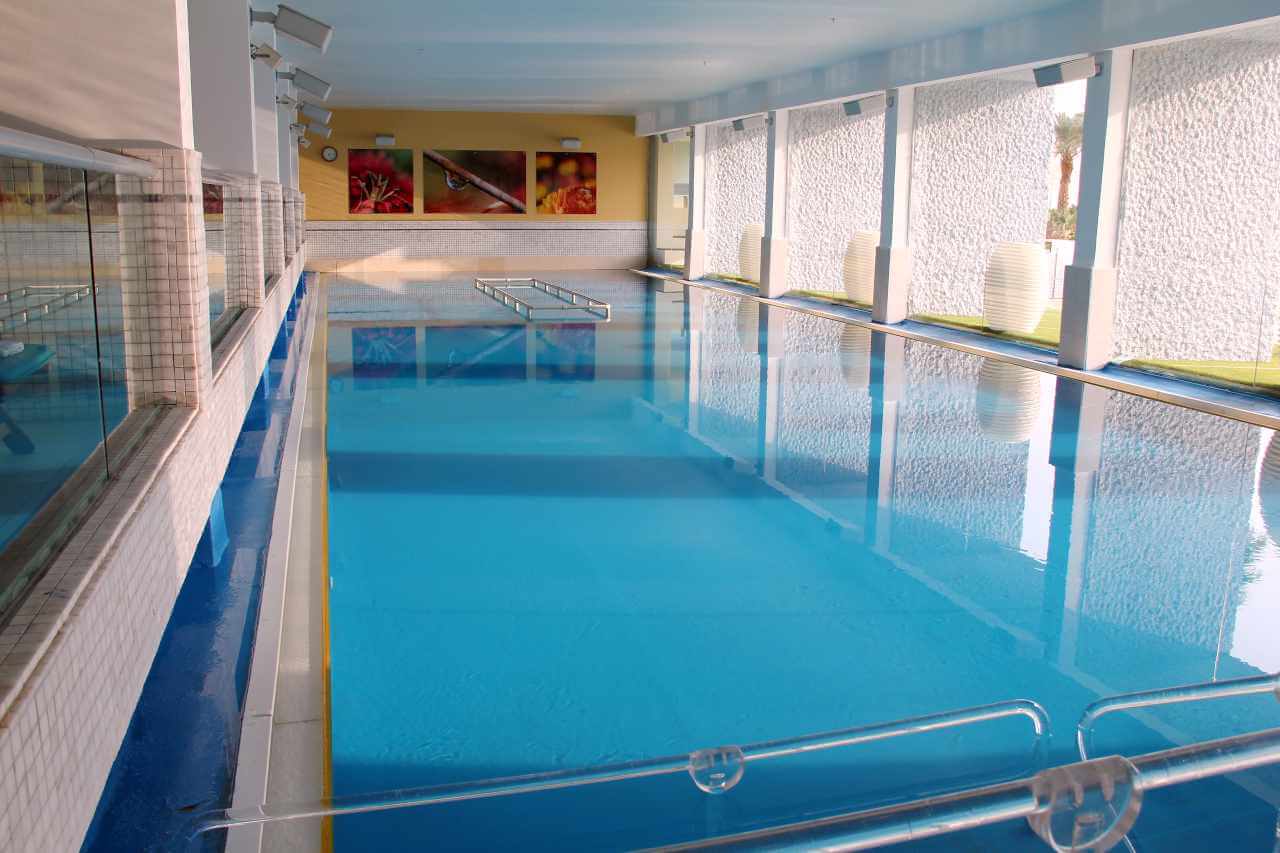
About the Department of Rheumatology at ACURA Rheumatology Center Baden-Baden
The Department of Rheumatology at the ACURA Rheumatology Center Baden-Baden offers a full range of medical services in this medical specialty. The department provides medical care for patients with rheumatoid arthritis, collagenosis, vasculitis, spondyloarthropathies (ankylosing spondylitis and psoriatic arthritis), Sjögren's syndrome, gout, scleroderma, infectious arthritis, polymyalgia rheumatica, and other pathologies. The therapeutic process begins with a diagnosis, including a clinical examination, laboratory tests, and instrumental tests. After reviewing the results, the doctors of the department begin to develop an optimal treatment regimen for the patient. The specialists of the department prefer comprehensive treatment, including drug therapy with immunologic agents, biologic medicines, and other modern drugs, physiotherapy, occupational therapy, diet therapy, pain management, and psychological support. Treatment is provided in accordance with current clinical protocols and recommendations of the German Society of Rheumatology (DGR) and the German League Against Rheumatism. The Head Physician of the department is Dr. med. Olaf Schultz.
The primary focus of the department's daily clinical practice is on the treatment of rheumatoid arthritis. The pathology develops due to a malfunction of the immune system, as a result of which the patient's own tissues are perceived as foreign. Rheumatoid arthritis is a systemic disease accompanied by symmetrical damage to the small joints of the upper and lower extremities. Women are 3 times more likely than men to have the disease. Rheumatoid arthritis develops at a young age (35-55 years), progresses relatively slowly, and over time often leads to loss of ability to work and a decrease in the quality of life. Rheumatoid arthritis causes stiffness in the joints in the morning, pain, swelling, and fever in the affected joints, the formation of rheumatoid nodules, general weakness, and malaise. Rheumatoid arthritis is characterized by exacerbations alternating with periods of relative remission. With a complex course of the disease, there is a high risk of damage to the internal organs, especially the heart and lungs. At the diagnostic stage, the department's doctors conduct a clinical examination, analyze the patient's medical history, perform a series of laboratory tests, X-rays, and joint puncture. In some cases, MRI may also be performed. The treatment of rheumatoid arthritis is based on drug therapy. Doctors use nonsteroidal anti-inflammatory drugs, basic drugs, hormonal drugs, and biological agents. The drug treatment regimen is prescribed individually, taking into account the stage and degree of activity of the pathological process. Medication is supplemented by comprehensive physiotherapy, massage, diet therapy, and other therapeutic measures.
The department's specialists also have exceptional qualifications in the treatment of reactive arthritis, an inflammatory disease that develops after an infection, most often intestinal or genitourinary. In most cases, reactive arthritis develops within a month after the infection: body temperature rises, headaches, malaise, joint inflammation, urethritis (frequent urination with pain and burning), and signs of conjunctivitis (lacrimation and redness in the eyes) develop. At the same time, joint symptoms appear (usually one or more joints become inflamed). The joints of the lower extremities are most often affected, so as the disease progresses, it may become difficult for the patient to move. Sometimes there is pain in the lower back, indicating damage to the sacroiliac joints and spinal joints. Reactive arthritis can occur in acute, subacute, chronic, and relapsing forms. The diagnostic protocol for suspected reactive arthritis includes a wide range of laboratory tests: a complete blood count, an urinalysis, a blood biochemistry test, immunological tests, a synovial fluid analysis, and others. Diagnosis also includes X-ray scans of the affected joints and ultrasound scans to assess the condition of the periarticular tissues; in complex cases, arthroscopy may be required. The main task of the department's doctors in the early stages of reactive arthritis treatment is to eliminate the primary infectious focus using antibacterial therapy. Inflammatory reactions in the joints can be relieved with nonsteroidal anti-inflammatory drugs. In severe cases of reactive arthritis, the department's specialists resort to therapy with corticosteroids and/or basic drugs. Non-drug treatments also have a beneficial effect. These may include physiotherapy, exercise therapy, massage, and diet therapy.
An important part of the work of the department's medical team is medical care for patients with inflammatory systemic diseases, one of the most common of which is systemic lupus erythematosus (SLE). This disease is autoimmune in nature and causes systemic inflammation with damage to the internal organs. The pathology is based on a dysfunction of the immune system. Systemic lupus erythematosus has a chronic course with periods of remission and exacerbations. It affects the skin, heart, kidneys, joints, lungs, and brain. The first signs of SLE are characteristic butterfly-shaped skin rashes on the cheeks and bridge of the nose. Other classic symptoms of systemic lupus erythematosus include fever, increased fatigue, joint pain, swelling, headache, and dizziness and inflammation of the mucous membranes of the nose and mouth. Anaemia, itching, fever, gastrointestinal problems, and enlarged lymph nodes may also occur. If not treated in time, the patient is at risk of developing serious complications, including pericarditis, myocarditis, nephritis, pneumonia, and pleurisy. The diagnosis of systemic lupus erythematosus is made based on the results of a clinical examination and laboratory tests. Treatment tactics depend on the manifestations and activity of the inflammatory process. Treatment includes the use of drugs from various pharmacological groups such as immunosuppressants, hormonal drugs, nonsteroidal anti-inflammatory drugs, etc. The department's specialists develop a treatment regimen for the patient, taking into account the degree of SLE activity, the presence of damage to the internal organs, general health condition, and other factors. It should be noted that systemic lupus erythematosus is considered an incurable disease, but with adequate and timely treatment there is a high chance of achieving noticeable improvement and long-term remission.
The department's clinical focuses include the following:
- Diagnostics and treatment of arthritis
- Diagnostics and treatment of rheumatoid arthritis
- Diagnostics and treatment of psoriatic arthritis
- Diagnostics and treatment of gout
- Diagnostics and treatment of Lyme disease
- Diagnostics and treatment of reactive arthritis
- Diagnostics and treatment of inflammatory systemic diseases
- Diagnostics and treatment of systemic lupus erythematosus
- Diagnostics and treatment of CREST syndrome
- Diagnostics and treatment of Sjögren's syndrome
- Diagnostics and treatment of polymyositis and dermatomyositis
- Diagnostics and treatment of Sharp syndrome
- Diagnostics and treatment of giant cell arteritis
- Diagnostics and treatment of polymyalgia rheumatica
- Diagnostics and treatment of Wegener granulomatosis
- Diagnostics and treatment of periarteritis nodosa
- Diagnostics and treatment of Behcet's disease
- Diagnostics and treatment of inflammatory spinal diseases (spondyloarthritis)
- Diagnostics and treatment of Bechterew's disease
- Diagnostics and treatment of SAPHO syndrome
- Diagnostics and treatment of osteoporosis
- Diagnostics and treatment of other rheumatic diseases
The department's therapeutic options include the following:
- Drug therapy
- Physiotherapy
- Occupational therapy
- Diet therapy, including the use of a ketogenic diet
- Pain management
- Psychological care
- Other treatment methods
Curriculum vitae
Professional Career
- 1995 - 1996 Internship.
- 1996 Admission to medical practice.
- 1998 Thesis defense. Topic: "Development of an in vitro model for studying destructive joint diseases."
- 1996 - 2003 Research Fellow and Assistant Physician.
- 2003 Board certification in Internal Medicine.
- 2005 Board certification in Rheumatology; clinical practice in the Department of Endocrinology and Diabetology and the Department of Nephrology, Rheumatology, Diabetology and Internal Medicine at the University Hospital Cologne.
- 2005 - 2019 Senior Physician, Department of Rheumatology, ACURA Rheumatology Center Baden-Baden.
- Since 01.2020 Head Physician, Department of Rheumatology, ACURA Rheumatology Center Baden-Baden.
Photo of the doctor: (c) ACURA Rheumazentrum Baden-Baden





